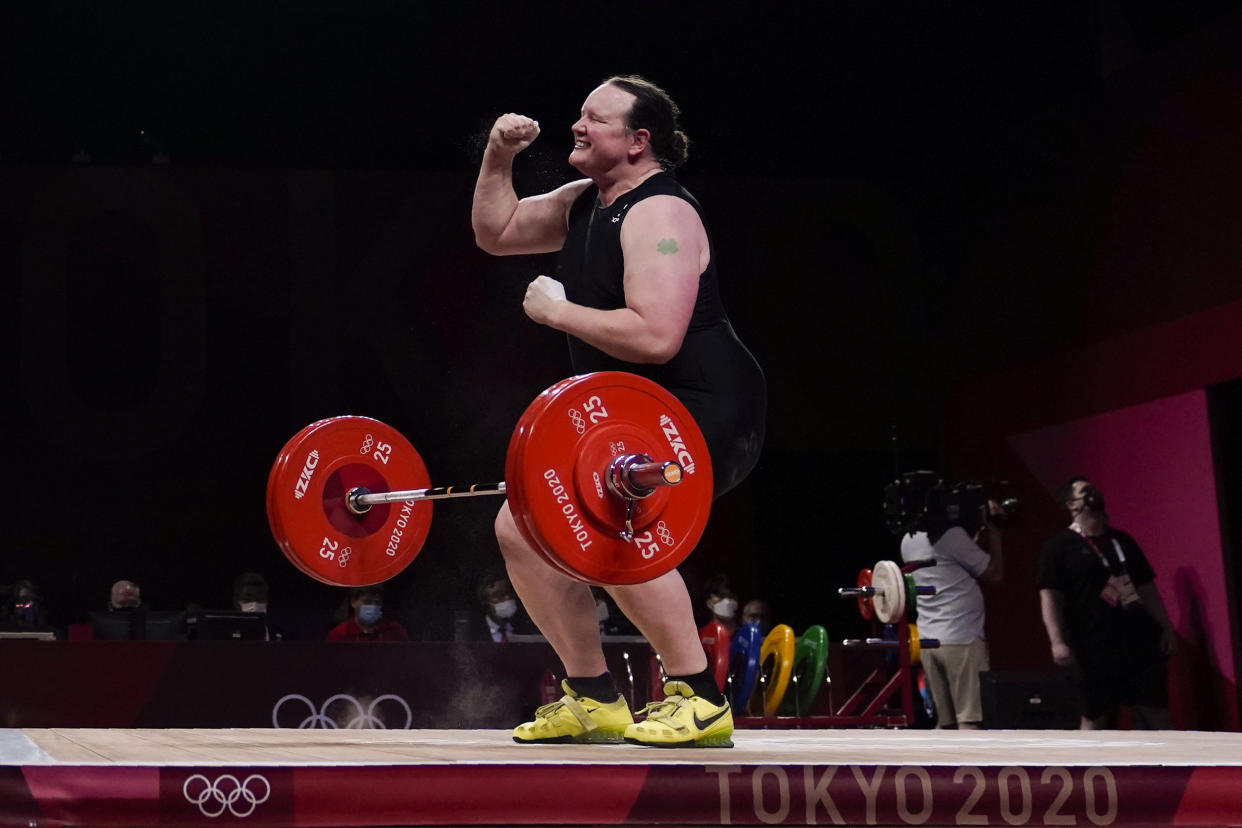Transgender Olympian Laurel Hubbard fails to win medal in Olympic debut
New Zealand weightlifter Laurel Hubbard, one of the first transgender athletes to compete in the Olympics, failed to win a medal Monday in the women’s over-87-kilogram division weightlifting event. It was her first and only event at the Tokyo Games.
The inclusion of Hubbard, 43, who transitioned in her mid-30s and has competed at the women’s international level since 2017, was divisive, with her supporters welcoming her participation while critics questioned the fairness of transgender athletes competing against cisgender women.
Prior to the Olympic Games, Hubbard had largely declined interviews, and she has remained off social media in recent years. After winning two silver medals at the 2017 International Weightlifting Federation world championships, she told Radio New Zealand, “I am who I am. I’m not here to change the world,” adding, “I just want to be me and just do what I do.”
Despite not coming away with an Olympic medal, Hubbard has the distinction of being part of sports history. While openly transgender athletes have been permitted to compete in the Olympics since 2004, this is the first year they have done so.
In addition to Hubbard, at least three other transgender and/or nonbinary athletes were — or still are — in Tokyo: Canadian soccer star Quinn, American skateboarder Alana Smith and American BMX Freestyle rider Chelsea Wolfe. While Smith failed to win a medal and Wolfe, an alternate, did not compete, Quinn — who uses they/them pronouns and goes by one name — is guaranteed to win a medal after Canada’s upset win over the U.S. Women’s National Team in Monday’s semifinals.

A record number of LGBTQ athletes are competing in the Olympics this year, with at least 179, more than triple the number at the 2016 Rio de Janeiro Olympics, according to Outsports.
